1510 people reached – 195 engagements on Lassi with Lavina FB page – Facebook Insights
Liked by Shoaib Ayubi, Nandini Ansari, Pranay Gupte, Jamie Cid, Suman Gollamudi Nanduru, Jitin Hingorani and 18 others on Lassi with Lavina FB page
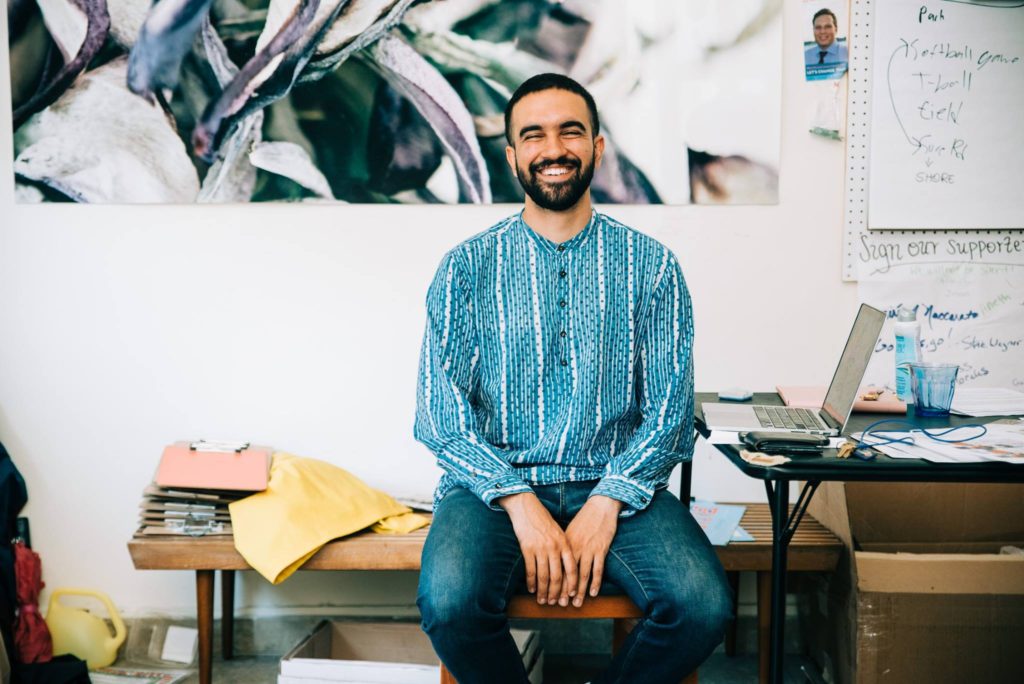
Roti and Roses:
Zohran Kwame Mamdani’s Class War in Queens
Zohran Kwame Mamdani, 28, could have potentially been a prince in Hollywood or Bollywood or even at a blue-chip American university but he chose to be a housing counselor for Chhaya CDC, a non-profit helping ordinary working-class people fight foreclosures and eviction and hold on to their American Dream with a place to call home. As a community organizer, he has pounded the pavements, ringing doorbells and getting the vote out.
Zohran is the son of noted Ugandan scholar Mahmood Mamdani, a political scientist and anthropologist who is Herbert Lehman Professor of Government and director of the Institute of African Studies at Columbia University. His mother is the international filmmaker Mira Nair. Zohran, earlier known as Young Cardamom, has produced some lively hip-hop and reggae videos including a strong one about disenfranchisement with Madhur Jaffrey called Nani.
How much was he influenced by the parents he’s had and how much has that influenced the life he’s chosen in the public sector? Mamdani, who lived in Kampala till he was 7, has Kwame as his middle name, after the first prime minister of Uganda. He recalls that from a very young age, politics was a big part of his life since his father’s family had been expelled from Uganda in 1972.
“That history is something I grew up with and something which is very real and close to me. And so I would constantly deal with this question of where is home, and you know my mother’s work also really meditates on that question of home. This is a question that I have been thinking about for my whole life. And I am so lucky to have the parents that I have, people who have fought for justice in their own ways, whether it’s through academia or through film to shine a light on that which has been ignored for far too long.”
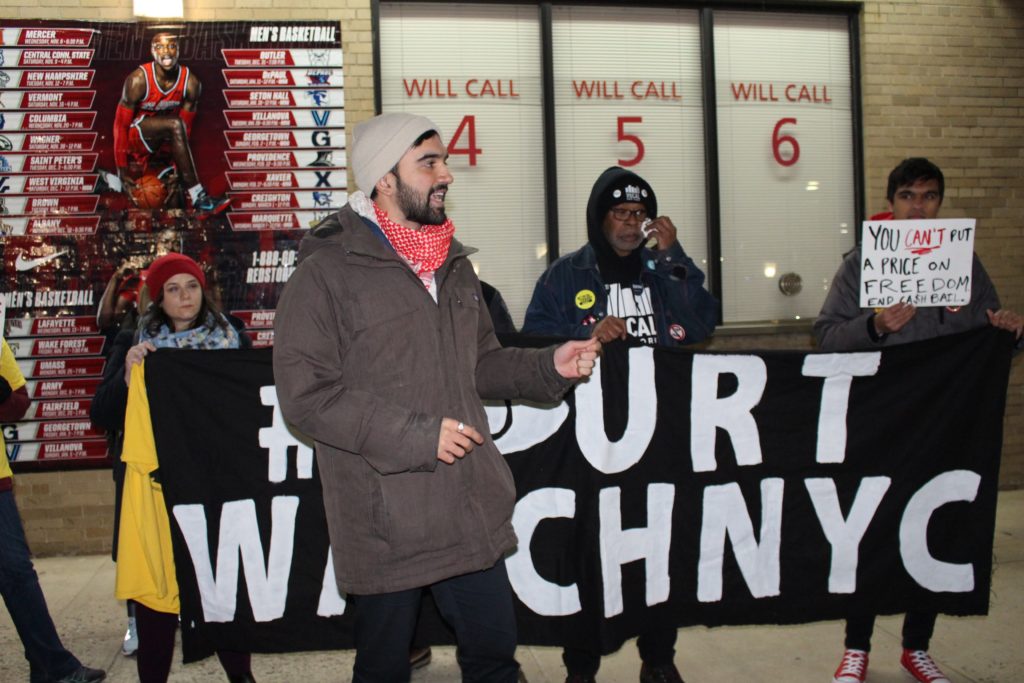
As a housing specialist the challenge was in turning each sad life around. Mamdani’s battle has been with housing instability which plagues so many South Asians in Queens. There are over 330,000 South Asians in New York, and for many homeowners or renters who speak only an Indian language and little English, finding support is difficult.
Indeed, the Indian-American community is a mixed microcosm of this country where there are a lot of very wealthy, Indian-Americans and also Indian-American families that are struggling. According to Mamdani, if you add Bangladeshi, Pakistani and Nepalese families, there are many who are really having a very difficult time of it.
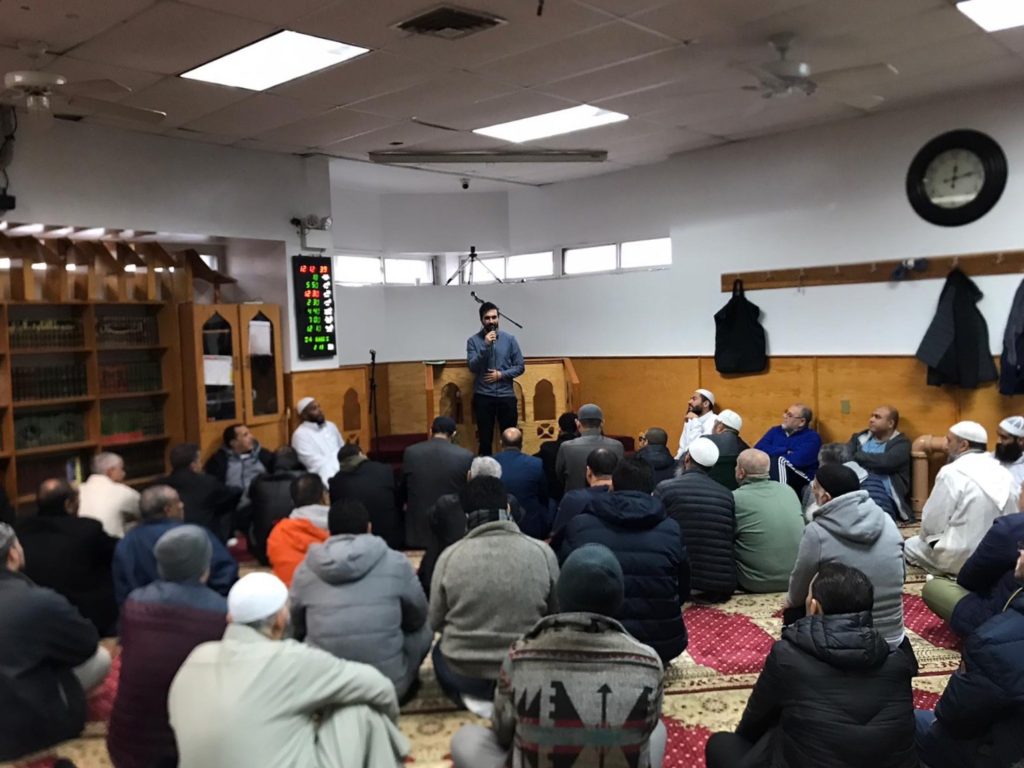
He recalls helping an elderly man settle his utility bill issues during the middle of winter when his electricity would have been turned off. He says, “In all these moments you feel good that you are able to help but as one person you can help only one person and you know your ability is limited by your capacity.”
As a housing counselor, he says, “You are kind of picking up the pieces, you’re trying to put things back together, but legislators have the chance to actually shape the world that we live in before the issue is really upon us. And you can change the laws such that you wouldn’t have people facing a lot of the issues that they face today, because you’re constantly told that it’s basically tenants versus homeowners but the reality is the two categories are in the same boat which is both are trying to make ends meet, as opposed to the speculators.”
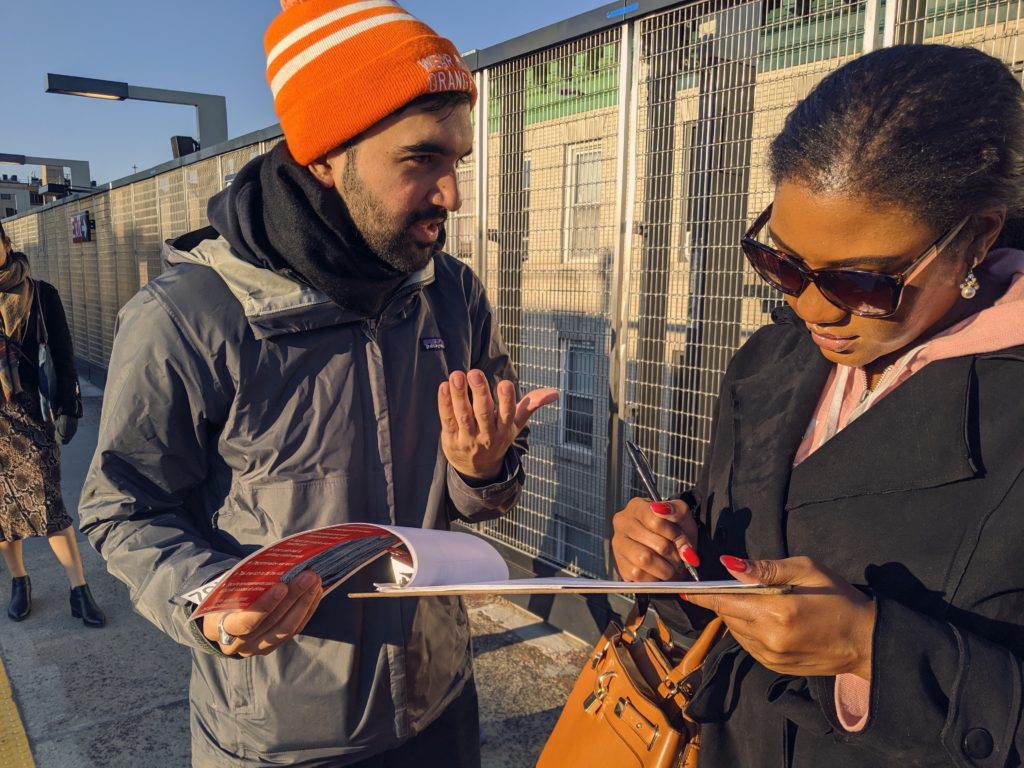
Now Mamdani has taken yet another step to make a difference in the civic and public life of Queens: He is standing for Assemblyman in New York State Assembly District 36, against the incumbent. Mamdani is running alongside many other progressive insurgents up and down the city in the state in a working class campaign to take back the power from real estate big guns.
As thectiy.nyc noted, “A long roster of progressive political newcomers is targeting Queens incumbents in local and national races – setting off primaries next year for some elected officials who’ve run unopposed for years.” .
I asked him about the fact that the second generation of Indian Americans really seem to care about a larger world than the one in their living room. Why has it become important and urgent for young immigrants to fix the world around us?
As Indians we have a long history in the city – and yet we have no representation in New York City!” points out Mamdani. “There’s never been a single Indian-American elected to office, And I think the issue is that for us, you know, we realize that there is no more time to wait. So many of us are struggling, and it is incumbent on those that have something to help others come up too, because there’s no point in succeeding as individuals when we could really be succeeding as a collective.”
“And I think that’s why so many Indian-Americans are really at the moment now. Yeah, because we’ve been told for so many years to either just put our heads down and think not of politics but of so many other industries and so many other things we can be doing, or we’ve been told to trust those who are already in the driver’s seat.”
So what does democratic socialism mean to Mamdani? “That which is necessary to live a dignified life, an extension of democracy, from the ballot box into all other aspects of our lives into our workplace, our schools, our healthcare system, because, frankly, we cannot allow the market to determine pricing for things which are necessary.”
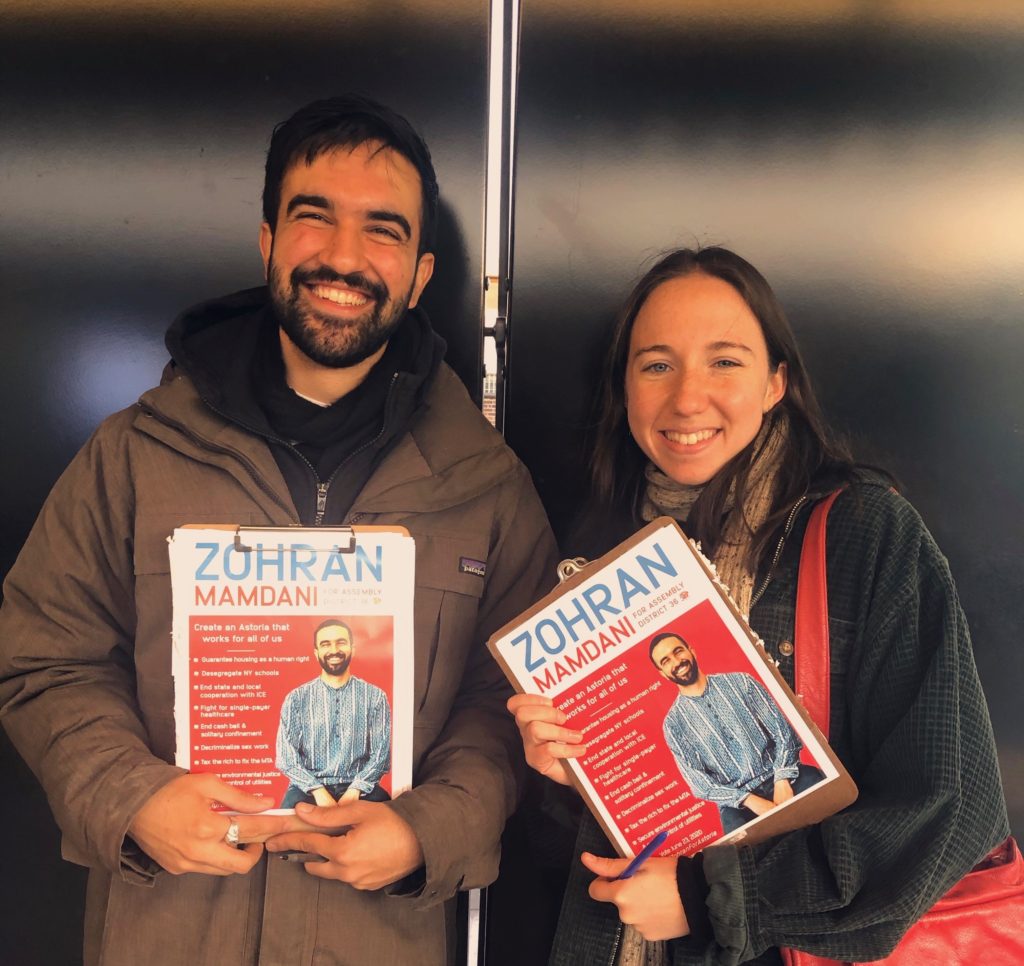
Since taking any funds from corporations is a no-no, Mamdani is coming up with creative ways to raise funds from individuals – including a desi comedy night with Hari Kondabolu which was a big success. He feels even very serious fights can be fought with humor because the point of this fight is still to tell the truth and at its core what comedy is all about is to tell the truth. Because a classic democratic socialist slogan is Bread and Roses, it has been transformed by Mamdani and Kondabolu to #RotiandRoses. “And the reason it’s roti and roses is because we’re both fighting for something universal and something specific, and the specificity is about being an Indian-American, a desi Muslim American running to represent our communities which have been shut out of the conversation for far too long.”
In the end, Zohran Kwame Mamdani with his rich inheritance of India,Uganda and America is also a story-teller and he would want to use his music and his stories to celebrate both roti and roses: “Whether it’s art, film, music or politics, it’s about telling a story and it’s about telling a story that has been ignored. The most powerful and the most potent are the ones that we have not heard before, or we’ve not been allowed to hear. And the story we are telling in this campaign is about all of us who are fighting back for our city.”
(This article was also published in my weekly column India in America in CNBCTV18.com )
Related Article:
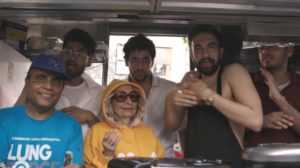
Madhur Jaffrey is a Rapper Grandma in Zohran Mamdani’s Video ‘Nani’

6 Comments
Kayhan Irani, the great thing about Queens is that it’s every race under the sun and I think that is what Zohran Mamdani likes about it – it’s a place of ‘us’ rather than ‘them’. By the way, I’ve added your comments to the comments section after the article so they can be shared with other readers.
Nivedita, I think it’s such a great story even without knowing who’s son he is or what he’s done before!
Jasjit Singh, That’s the great thing about the younger generation – they have a larger world view than most of us!
Kayhan Irani via Facebook
Wonderful thing that he’s not only dedicated to “Indian” communities but is well aware of our deep interconnected roots as South Asians. Please more progressive, humanistic Indian candidates rather than RSS trainees
Nivedita Chandrappa via Facebook
Interesting, thank you so much for letting us know about this young and famous rep from Queens
Jasjit Singh via Facebook
How refreshing, thank you. So cheering to read about committed, innovative and practical individuals with a different perspective